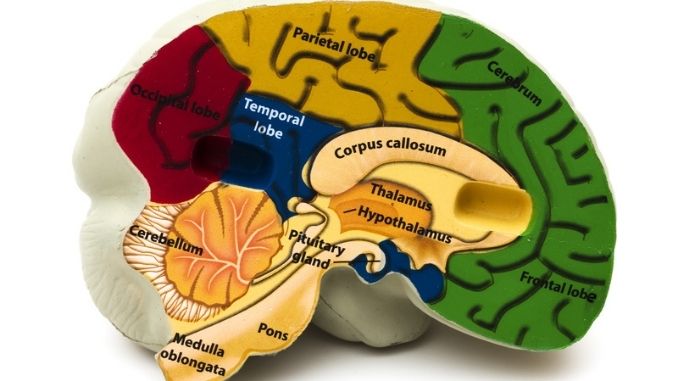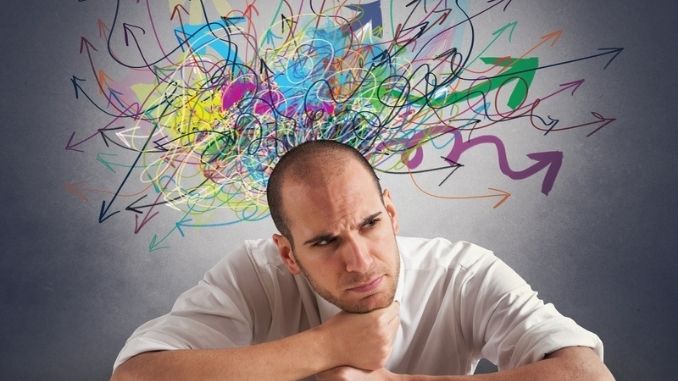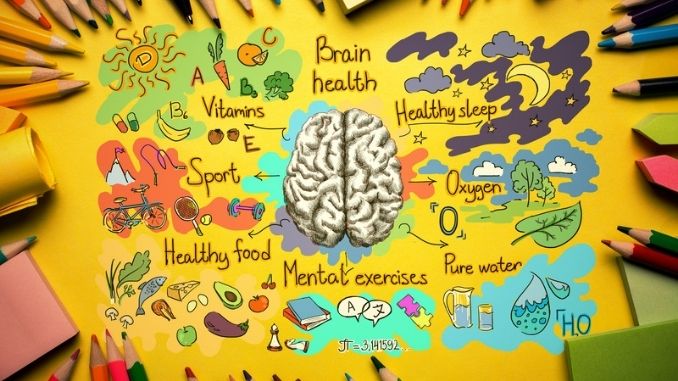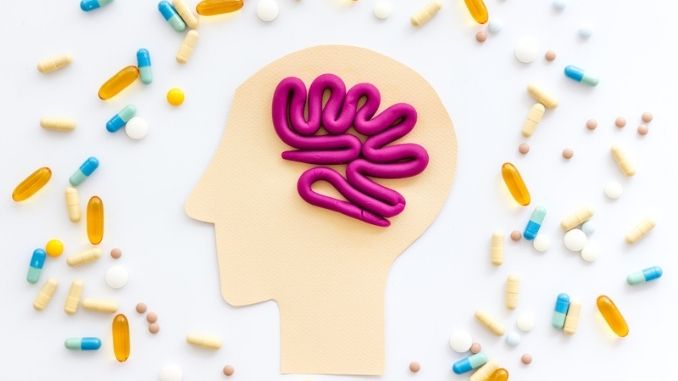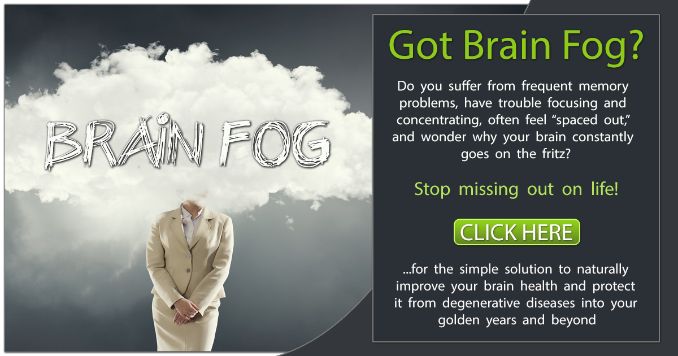Do you frequently space out when you should focus on a specific task or activity? Do you have difficulty staying focused? Have you lost your ability to concentrate, even on the most trivial things? This feeling of mental fuzziness is commonly referred to as brain fog.
Brain fog is not a condition but a symptom that can affect your ability to think clearly. It’s a type of cognitive dysfunction involving memory problems, lack of mental clarity, poor concentration, and inability to focus.
The Brain Explained
The brain’s gray matter contains most of the brain’s neuronal cell bodies. It plays a substantial role in all aspects of human life, including muscle control, memory, emotions, speech, decision-making, self-control, and sensory perception, like seeing and hearing. With aging, the brain loses volume and dwindles, a crucial element in cognitive decline. Moreover, as you age, your brain loses neurons, the cells that make up the brain and nervous system. Over time, this loss can affect various aspects of memory and cognitive ability. However, the brain also continues to make new neurons, even into old age. These neurons are produced in the Hippocampus daily.
The Hippocampus is a complex brain structure embedded deep in the temporal lobe. It has a significant role in learning information, storing long-term memories, and regulating emotions. It is a plastic and vulnerable structure that can get damaged by various stimuli.
Experiencing brain fog symptoms like sluggish or blurry thinking is not uncommon. Everyone experiences this feeling from time to time, when you are feeling sick, jet-lagged, or have taken a medication that has temporarily slowed your thinking. In these situations, you likely just waited for the symptoms to pass. But what if your brain fog symptoms are happening more frequently and your ability to concentrate isn’t returning? Getting to the root cause of your issues is essential, as this is the starting point on your road to clearer thinking.
Causes of Brain Fog
There can be many causes of brain fog. Below we have shared some of the most common.
1. Lack of Sleep
One of the most common causes of brain fog is simply not getting enough sleep. Because of this, it’s essential to ensure that you are getting the quantity and quality of sleep needed to function optimally. Poor sleep quality can affect your ability to work and focus, leading to feeling “foggy.”
2. Stress
Chronic stress can increase your blood pressure, weaken your immune system, and trigger depression. It can also cause mental fatigue. When your brain is exhausted, it becomes harder to think, reason, and focus. Decreasing your stress levels can positively impact your brain and virtually every other aspect of your health.
3. Hormonal Changes
Hormonal changes can also trigger brain fog. Levels of the hormones progesterone and estrogen increase during pregnancy, and this change can affect memory and cause short-term cognitive impairment. Similarly, a drop in estrogen levels during menopause can cause forgetfulness, poor concentration, and cloudy thinking.
4. Diet
Diet plays a significant role in brain fog. Vitamin B-12 supports healthy brain function, and a vitamin B-12 deficiency can lead to brain fog. Likewise, food allergies or sensitivities can create feelings of brain fog. Common culprits include MSG, aspartame, peanuts, and dairy. Removing any of these trigger foods can help eliminate symptoms.
5. Medications
You must talk with your doctor if you notice brain fogginess while taking specific medications. Brain fog may be a known side effect of that drug, so lowering your dosage or switching to another medication may improve your symptoms. Brain fog is also common after cancer treatments often called the ‘chemo brain.’
6. Medical Conditions
Medical conditions associated with inflammation, fatigue, or changes in blood glucose levels can also cause mental fatigue. For example, brain fog is a symptom of chronic fatigue syndrome, which involves persistent fatigue for longer than six months. People who have fibromyalgia may also experience similar fogginess daily.
Other conditions that may cause brain fog to include:
- Anemia
- Alzheimer’s Disease
- Autoimmune Diseases (Lupus, Arthritis, and Multiple Sclerosis)
- Dehydration
- Depression
- Diabetes
- Chronic Fatigue Syndrome
- Hypothyroidism
- Sjögren Syndrome
Helpful Activities to Clear the Fog:
You can take several steps to help diminish your brain fog symptoms. Taking active measures to improve your thinking and memory is strongly recommended.
1. Exercise Regularly
You likely already know that regular exercise benefits your body, but you might be surprised to learn that these payoffs can also apply to your brain. Research has shown that physical activity enhances cognitive health. Exercise seems to stimulate neuroplasticity, the brain’s ability to form new neural connections and adapt throughout life. Research has also shown that physical activity can delay dementia and help individuals with cognitive decline function better.
During cardiovascular exercise, your heart rate and blood flow increase. More oxygen and nutrients are delivered to your brain, which keeps your brain cells healthy. This surge in blood flow helps regenerate new neurons in the brain – a process known as neurogenesis. Hence, cardiovascular exercise may promote brain health and slow the diminution of gray matter. In many studies, walking briskly for 30-60 minutes, 3-5 times a week, contributed to measurable brain improvements.
Evidence suggests that resistance training such as push-ups, planks, squats, and lifting weights can help your brain function better.
2. Sleep Well
Sleep is when the brain and body can clear out toxins and work towards healing. Make sure you give your body the rest it needs.
3. Participate in Social Activities
We are social animals. Not only do social activities benefit our moods, but they encourage thinking and memory as well. Spending time connecting with others can undoubtedly improve your brain function immeasurably.
4. Brain Training Games
Brain training games can help improve your memory, response time, and logic skills. If you want to give your brain a workout and have fun, try these games and activities that may improve your mental focus and fitness.
- Lumosity is one of the most regular brain training and mental fitness programs. Lumosity’s fun brain training and mental fitness games, tests, and activities are backed by science.
- Crosswords are a classic brain trainer, accessing not only verbal language but a memory from many dimensions of knowledge.
- Peak is another app-only option that provides brain games to help you work on focus, memory, problem-solving, mental agility, and more cognitive functions.
5. Pursue Other Brain Stimulating Activities
Engage in other cognitively stimulating activities. Listening to music, practicing mindfulness, meditating, reading, and keeping a positive mental attitude are some of the most effective exercises you can try to improve brain function.
Treatment Options
Treatment for brain fog depends on the cause. For example, iron supplements may increase your production of red blood cells and reduce your brain fog if you’re anemic. If you’re diagnosed with an autoimmune disease, your doctor may recommend a corticosteroid or other medication to reduce inflammation or suppress the immune system.
Sometimes, relieving brain fog is simply a matter of correcting a nutritional deficiency, switching medications, or improving the quality of your sleep. It can combine different interventions, depending on what works best for you.
It’s essential to promote optimal brain functioning, like getting adequate sleep, reducing stress, exercising regularly, eating a healthy diet, limiting alcohol and caffeine consumption, and pursuing different brain-stimulating activities.
Supplements and Brain Health
When considering brain supplements to help decrease your brain fog, really dig in and do your research. Nootropics are drugs or supplements that improve cognitive function, memory, clarity, and creativity. Many popular nootropics manufacturers make claims that aren’t based on science, or at least not on sound science, so look to see what types of research they’re using to back up their claims.
Fish oil is one of the supplements often recommended for brain fog. It contains an omega-three fatty acid called Docosahexaenoic acid (DHA) and can decrease your mental fatigue, improve your bone health, and support healthy skin.
Turmeric and Curcumin have also been linked to increased brain function and a lower risk of brain diseases.
If you have a persistent lack of clarity that worsens or doesn’t improve, it’s time to consult your doctor. Do note that a single test can’t diagnose brain fog. Brain fog may signal an underlying issue, so your doctor will likely conduct a physical examination and ask you various questions to help determine the cause of any cognitive symptoms. Remember that taking active steps towards healthier living is the best way to keep your brain functioning optimally.
Learn more all-natural strategies to eliminate brain fog once and for all! Click here for more information.


